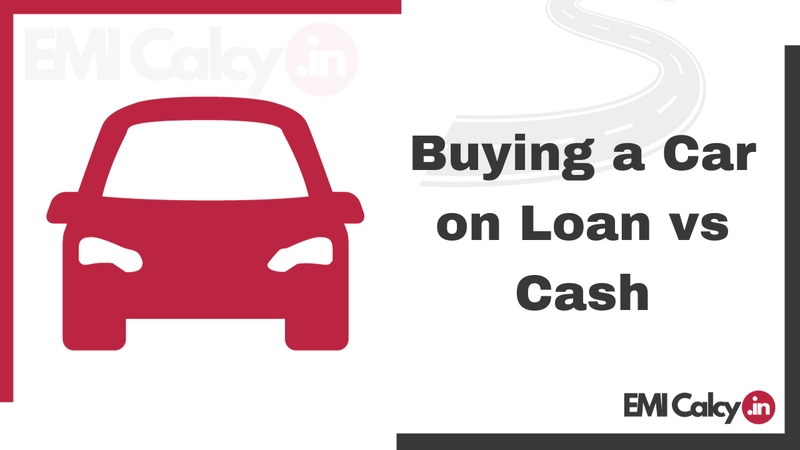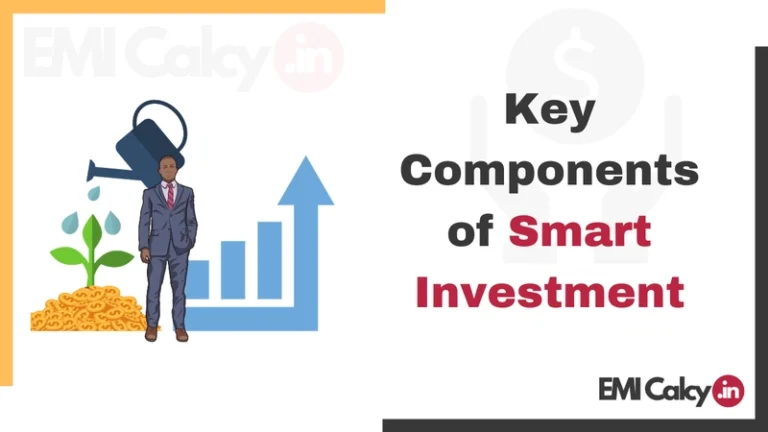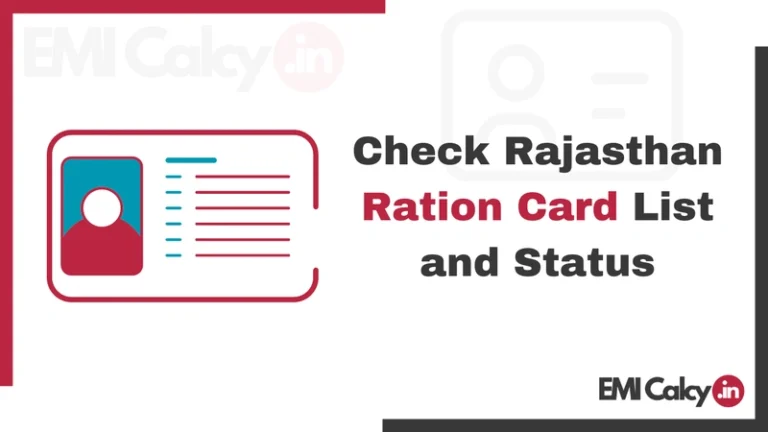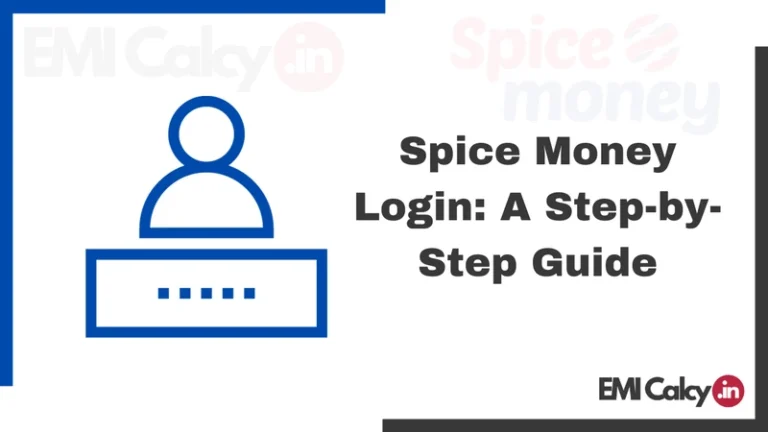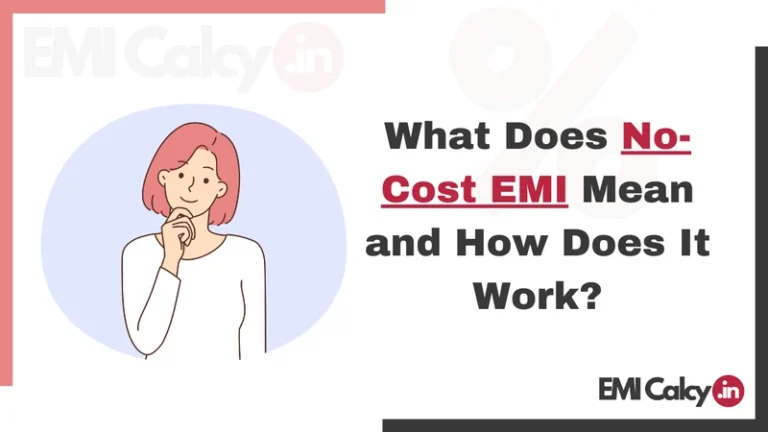Are you in the market for a new car in India? If so, you’ve probably been mulling over one of the most critical decisions you’ll make in this process, whether to buy your dream car with cash upfront or opt for a car loan.
Where cars are not just a mode of transportation but also a symbol of status and prestige, this decision can be particularly significant.
In this comprehensive guide, we’ll understand whether buying a car on EMI is good or bad and weigh the pros and cons of both options to help you make an informed decision that suits your needs and financial situation.
Understanding the Indian Car Market
Before we delve into whether it’s worth buying a car in EMI, or the cash vs. loan debate, let’s take a quick look at the Indian car market. India is one of the world’s largest automobile markets, and it offers a wide range of options, from budget-friendly hatchbacks to luxury SUVs.
When buying a car, you have to consider various factors, including the type of vehicle, your budget, and the ongoing costs of ownership, such as fuel, maintenance, and car insurance. When you buy this bank loan, the EMI calculator will help you.
Related: Car Loan EMI Calculator Online
Buying a Car with Cash
Pros:
- No Interest Payments: The most apparent advantage of buying a car with cash is that you don’t have to pay any interest on a loan. In a country where car loan interest rates can range from 7% to 12%, this can translate into substantial savings over the long term.
- Full Ownership: When you pay for your car upfront, you own it outright from day one. There are no monthly installments, and you don’t have to worry about defaults or late payments affecting your credit score.
- No Loan-Related Hassles: Dealing with a car bank loan can be cumbersome. You’ll need to go through the loan approval process, provide documents, and keep up with monthly payments. Buying with cash eliminates all these hassles.
- Negotiating Power: Sellers often prefer cash buyers because the deal is straightforward, and they don’t have to worry about the buyer’s creditworthiness or the complexities of a loan transaction. This can give you better negotiating power and might even lead to discounts or incentives.
Cons:
- Tying Up Capital: Purchasing a car with cash requires a significant upfront payment. This could tie up a substantial portion of your savings, limiting your liquidity for other important investments or emergencies.
- Opportunity Cost: By paying upfront, you miss out on the opportunity to invest that money elsewhere, potentially earning a return that could outweigh the interest saved by not taking a loan.
- Depreciation: Cars are notorious for depreciating in value rapidly. When you pay in cash, you bear the full brunt of this depreciation, which can be a significant financial hit.
- Reduced Financial Flexibility: Using a significant chunk of your savings to buy a car can limit your financial flexibility. You may find it challenging to tackle unexpected expenses or seize investment opportunities.
Buying a Car with a Loan
Pros:
- Preserve Cash Flow: One of the primary advantages of taking out a car loan is that it preserves your cash flow. Instead of a substantial upfront payment, you make smaller monthly payments, allowing you to keep your savings for emergencies or other investments.
- Tax Benefits: Car loans come with potential tax benefits. Under Section 80C of the Income Tax Act, the principal amount of the car loan can be deducted from your taxable income, reducing your overall tax liability. Additionally, the interest paid on the loan is tax-deductible under Section 24(b) of the Income Tax Act.
- Opportunity for Investment: By choosing a car loan, you have the opportunity to invest the money you would have spent upfront in avenues that can yield a higher return, potentially offsetting the interest paid on the loan.
- Fixed Interest Rates: Car loans typically come with fixed interest rates, which means you have a predictable monthly expense. This can help you budget effectively.
Related: How to Save Money from Salary Like a Pro
Cons:
- Interest Costs: The most significant drawback of taking out a car loan is the interest you’ll have to pay over the loan’s tenure. In a country where car loan interest rates can be relatively high, this can add a substantial cost to the overall price of the car.
- Debt Obligation: When you opt for a car loan, you’re committing to a debt obligation. Defaulting on payments can harm your credit score and potentially lead to the repossession of your vehicle.
- Total Cost of Ownership: While monthly payments may seem manageable, it’s crucial to consider the total cost of ownership. Beyond the car loan, you’ll also need to budget for fuel, insurance, maintenance, and other ongoing expenses.
- Risk of Negative Equity: Cars tend to depreciate rapidly. If the value of your car drops faster than you’re paying down your loan, you may find yourself in a situation where you owe more on the car than it’s worth, a situation known as negative equity.
Factors to Consider When Making Your Decision:
Financial Situation
Is it better to buy a car with cash or a loan? Your current financial situation is perhaps the most critical factor in this decision. If you have enough savings to purchase a car without significantly impacting your financial security, paying cash might be the best choice.
However, if it would strain your finances or deplete your emergency fund, a loan could be a more prudent option.
Interest Rates
Pay attention to the current interest rates on car loans. If they are exceptionally low, financing the car may be more attractive as the cost of borrowing is reduced.
Investment Opportunities
Consider the potential returns on investments that you could make with the money you would otherwise use to buy a car. If you believe you can earn a higher return on investment than the car loan interest rate, taking a loan may be a smarter financial move.
Tax Benefits
Take advantage of tax benefits offered on car loans, such as deductions on the principal and interest. Consult a tax advisor to understand how these benefits apply to your specific situation.
Loan Tenure
The duration of the loan can significantly impact your decision. A shorter loan term typically results in lower interest costs but higher monthly payments. Longer loan terms reduce monthly payments but can lead to higher overall interest payments.
Resale Value
Some cars hold their value better than others. Consider the resale value of the car you plan to purchase. If it’s expected to depreciate slowly, the financial hit from paying in cash might be less pronounced.
Related: How to Reduce EMI of Existing Personal Loans
Case Study: Cash vs. Loan
Let’s illustrate the cash vs. loan decision with a case study. Suppose you’re considering purchasing a car for ₹10 lahks (₹1 million). You have two options: paying in cash or taking out a car loan with a 5-year tenure at an interest rate of 10%. Here’s how the numbers break down:
Buying with Cash:
- Initial cost: ₹10,00,000
- Ongoing expenses (fuel, maintenance, insurance, etc.): ₹1,50,000 per year
- Total expenses over 5 years: ₹17,50,000
Buying with a Loan:
- Loan amount: ₹10,00,000
- Interest rate: 10%
- Loan tenure: 5 years
- Monthly installment: ₹21,266
- Total interest paid over 5 years: ₹2,75,945
- Total expenses over 5 years (loan + ongoing expenses): ₹15,75,945
In this case study, you save ₹1,74,055 by taking a car loan and investing the initial ₹10,00,000 in an opportunity that yields a return higher than the car loan interest rate. However, this calculation does not account for the potential tax benefits associated with the car loan or the psychological benefits of owning the car outright.
Conclusion
The decision to buy a car with cash or through a loan is a personal one that should be based on your unique financial situation and goals. Both options have their pros and cons, and it’s essential to consider factors like interest rates, tax benefits, investment opportunities, and your ability to maintain your financial security.
If you have the financial means to purchase a car without impacting your overall financial well-being and if you value the simplicity and autonomy of full ownership, paying in cash may be the way to go. However, if you want to preserve your cash flow, take advantage of tax benefits, and potentially earn a better return on investment, financing your car with a loan can be a smart choice.
Ultimately, it’s a decision that should align with your financial goals and lifestyle. Take the time to carefully weigh the options, and consider consulting a financial advisor or tax expert to help you make an informed choice. Whether you choose to pay with cash or opt for a car loan, the most important thing is to enjoy your new car and make the most of your investment.
Related: How to Improve CIBIL Score Quickly
FAQs about Buying a Car on Loan vs Cash in India
Cash vs. Loan – Which is the Better Option for Buying a Car?
The choice between cash and a car loan depends on your financial situation and goals. Paying in cash offers autonomy and avoids interest payments, but it may tie up your savings. A car loan preserves cash flow, provides potential tax benefits, and allows you to invest your money elsewhere. Consider your specific circumstances before making a decision.
How Can I Calculate the Monthly EMI for a Car Loan?
You can easily calculate your car loan EMI using an online Car Loan EMI Calculator. Just enter the loan amount, interest rate, and loan tenure to get an estimate of your monthly installment. However, for precise figures, consult your lender.
Buying a Car on EMI – Is it a Good or Bad Idea?
Whether buying a car on EMI is a good or bad idea depends on your financial situation and preferences. EMI options can make a car purchase more affordable, but it’s essential to assess the total cost of ownership, including interest payments.
Is it Worth Buying a Car on EMI in India?
The decision to buy a car on EMI is subjective and varies from person to person. It can be a good choice if you prefer to maintain your financial liquidity, take advantage of tax benefits, and have the option to invest your money elsewhere.

